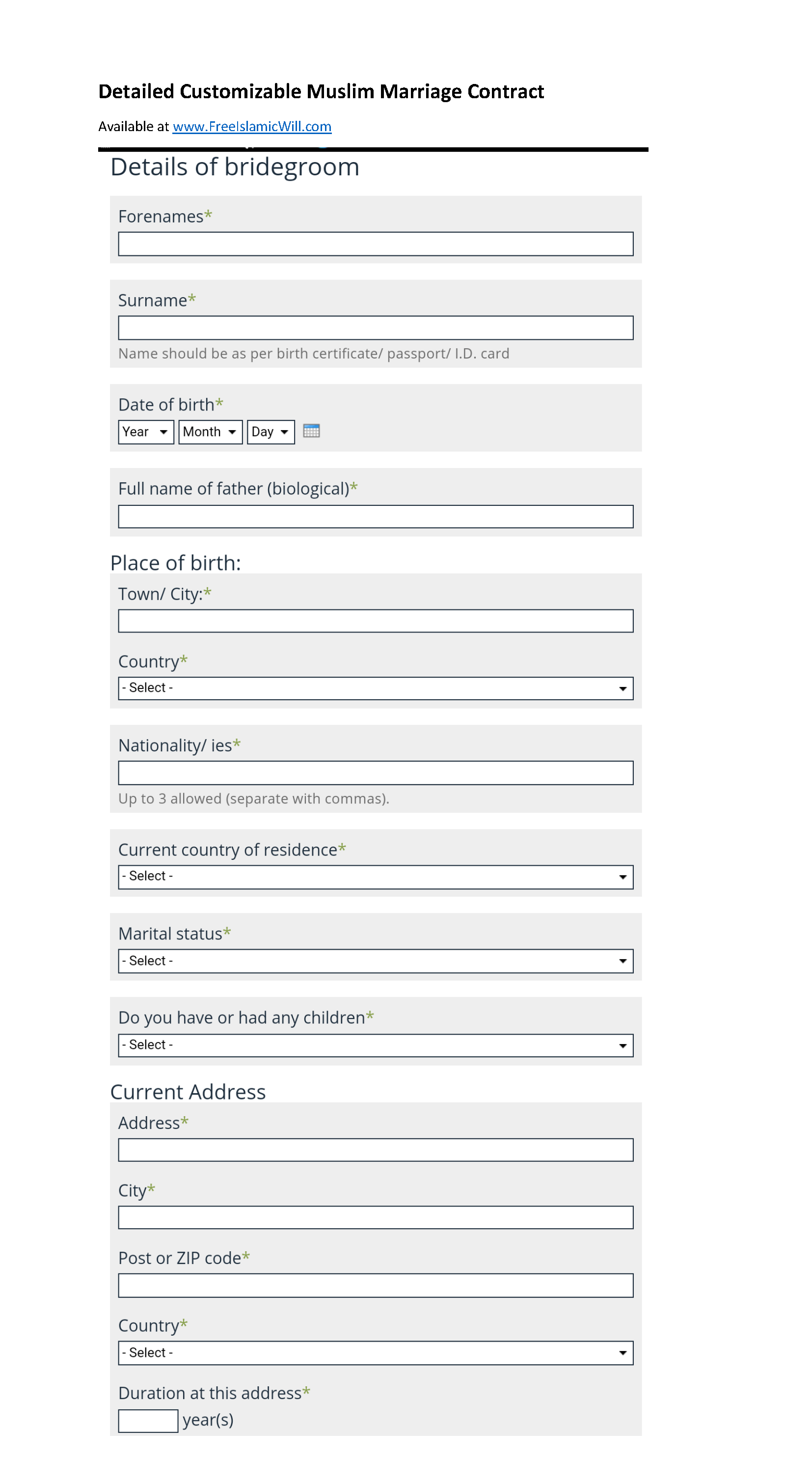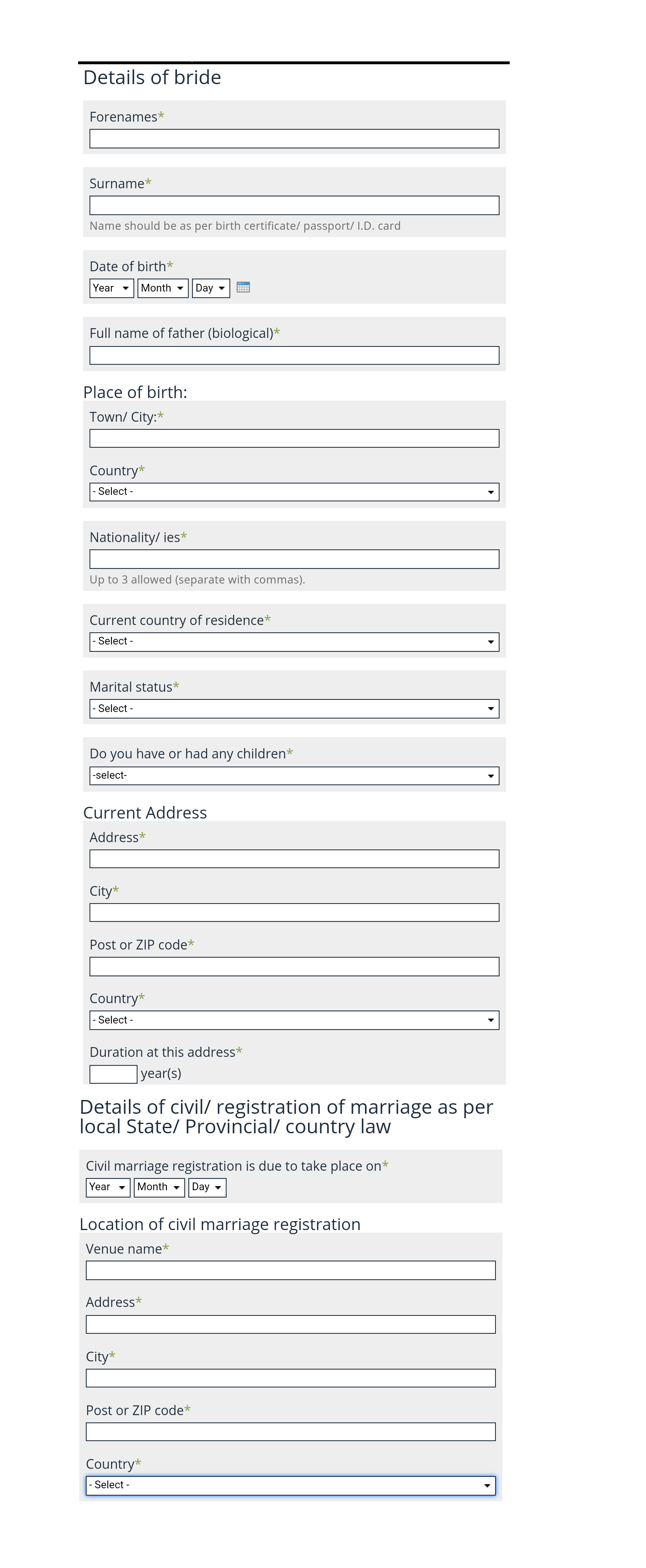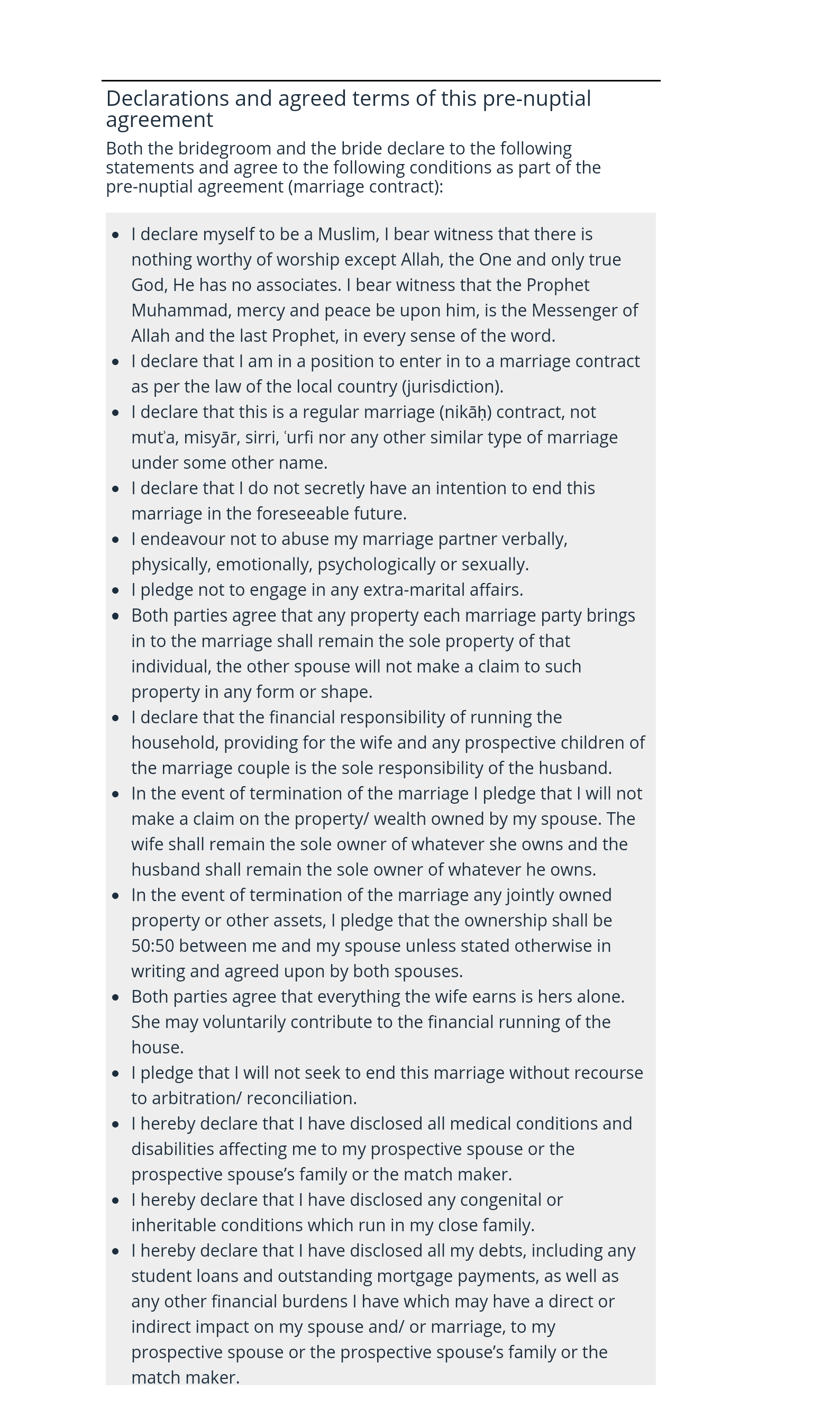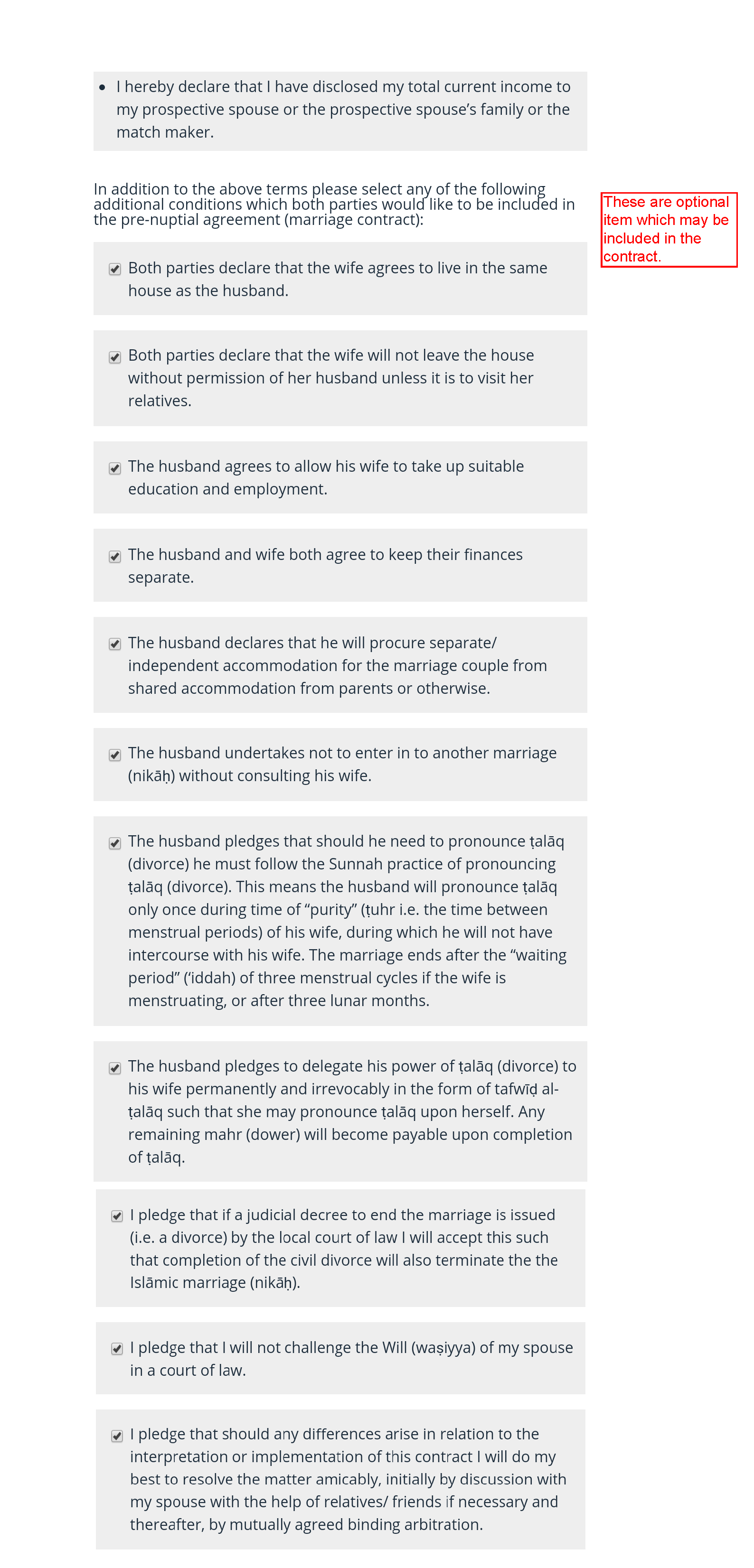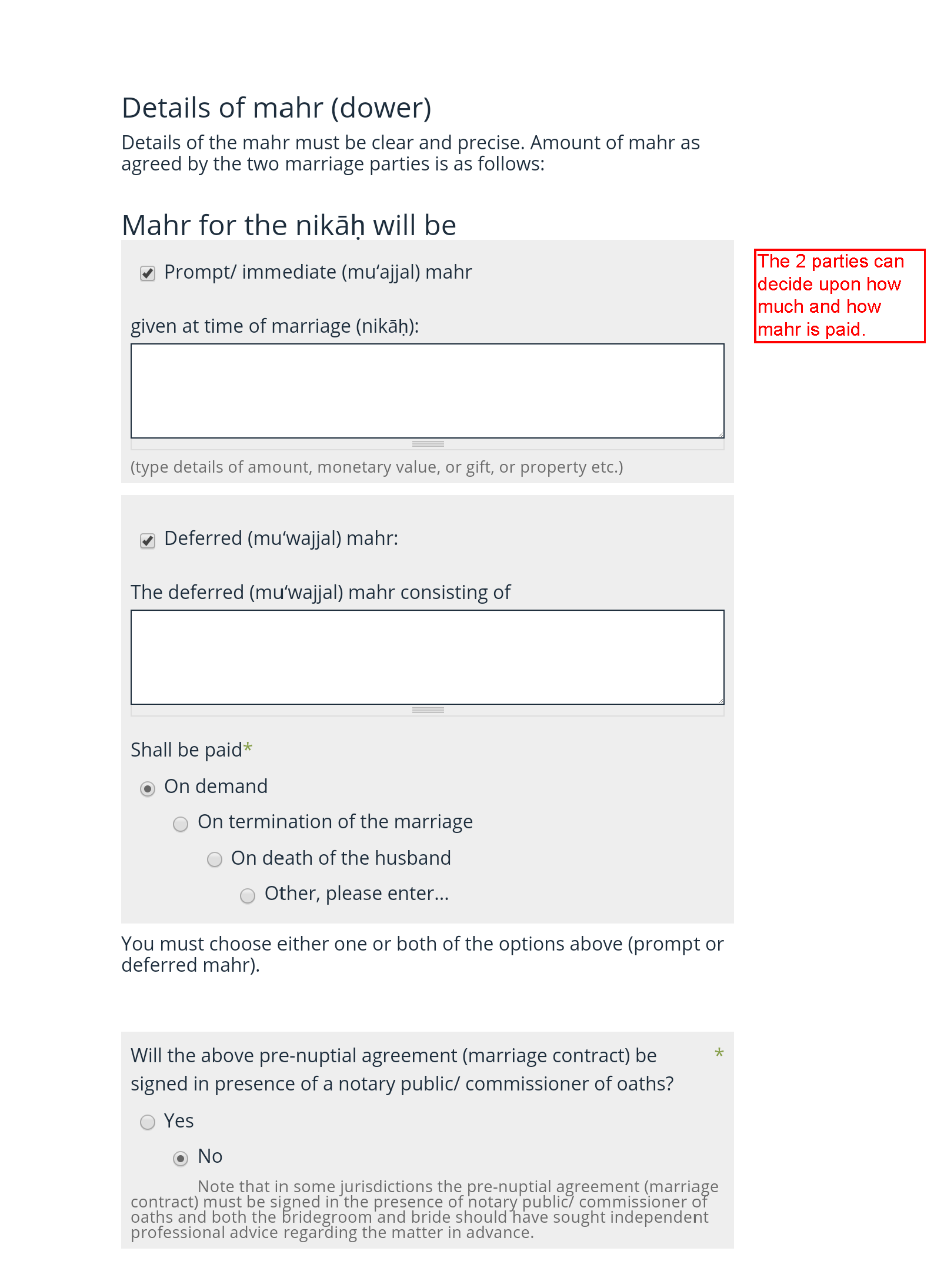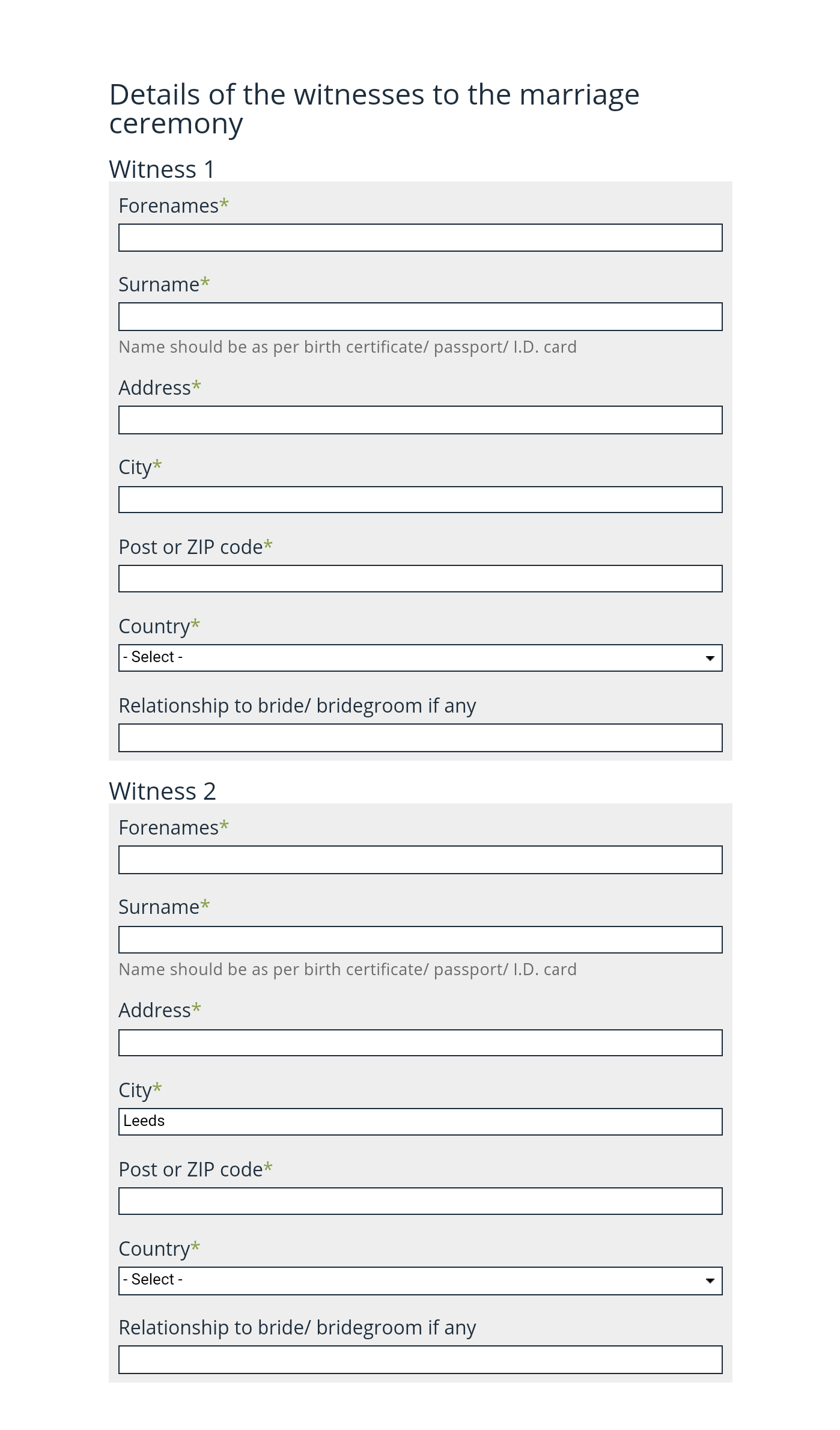بِسۡمِ اللهِ الرَّحۡمٰنِ الرَّحِيۡمِ
An example of a Muslim marriage contract text is available at end of this article
Prenups offer a sense of certainty and can mitigate conflict in the event of marital breakdown. Particularly advantageous in cases involving substantial assets, such as family wealth preservation or safeguarding assets for children from previous marriages, prenups serve as a contractual framework dictating financial rights and responsibilities upon divorce.
The process of financial claims during divorce proceedings lacks fixed rules, with outcomes varying based on individual circumstances and interpretations of overarching principles. These principles primarily encompass the notions of 'sharing,' 'needs,' and 'compensation,' with the former involving equitable division of marital assets while allowing spouses to retain pre-existing, inherited, or gifted assets. The duration of the marriage significantly influences the degree to which assets can be ringfenced. The concept of 'needs' encompasses generous assessments of housing and income, with particular consideration given to financial dependence and sacrifices made during the marriage. In instances where one spouse's needs are met by utilizing the other's non-matrimonial assets, the court readily intervenes.
A prenup alters the landscape of divorce proceedings, providing a predetermined framework for asset division and financial provision, provided certain procedural and financial fairness criteria are met. Procedural fairness entails full financial disclosure, independent legal advice for both parties, and absence of undue pressure during agreement formation. Financial fairness considerations encompass preventing one spouse from being left in a position of real need. While the exact parameters of financial provision remain somewhat ambiguous, prenups increasingly carry weight in judicial decisions, with procedural arguments losing significance over time.
Various types of prenups exist, ranging from general agreements excluding specific assets to detailed arrangements outlining provisions based on marriage duration and presence of children. Principle-based prenups offer flexibility and clarity, reducing the need for frequent revisions and minimizing pre-wedding tension. Such agreements commonly address housing, income, and child maintenance needs, particularly beneficial in cases involving significant wealth or assets brought into the marriage.
The aim of Muslim marriage contract is so that each party is aware of its own rights as well as the rights of the other party and has sufficient information about the other party before entering into a marriage. Disclosure of full details prior to marriage can be a source of discontentment, antagonism and perhaps eventual dissolution of the marriage. If the marriage should fail and needs to be terminated then the pre-nuptial agreement (Muslim marriage contract) will, hopefully, allow this to take place in a pre-agreed manner, thereby reducing the cha nces of expensive lawsuits.
nces of expensive lawsuits.
Both parties to the marriage should agree on the terms and conditions of their pre-nuptial agreement after having sought appropriate legal advice independently and any other type of advice deemed necessary for the purpose. The pre-nuptial agreement must be fair to each party.
In summary, the following steps need to be carried out:
- Each party should get legal advice independently from a qualified lawyer/ solicitor about the marriage contract (pre-nuptial agreement) before signing the contract.
- The solicitor must confirm that the marriage contract (pre-nuptial agreement) was entered in to freely without any pressure.
- Each party should declare their assets and property in full, and make provisions for children.
- The contract should be fair to each party
- If circumstances change the marriage contract (pre-nuptial agreement) should be reviewed to ensure it remains fair to both parties.
Once the parties have agreed on the terms and conditions in discussion with their individual solicitor then the pre-nuptial agreement (Muslim marriage contract) can be printed out and signed by each party.
In conclusion, prenups serve as valuable tools for safeguarding individual assets and clarifying financial obligations in the event of marital dissolution. Their establishment can alleviate future stress and legal costs, offering peace of mind while allowing couples to focus on their relationship without the spectre of financial uncertainty looming overhead.
The Muslim Contract (FIW-MMC©) on this website is Sharīʿa compliant, it has been examined and approved by Islāmic scholars from a Sharīʿa perspective.
The following customisable Marriage Contract will be available on freeislamicwill.com insha'Allah
